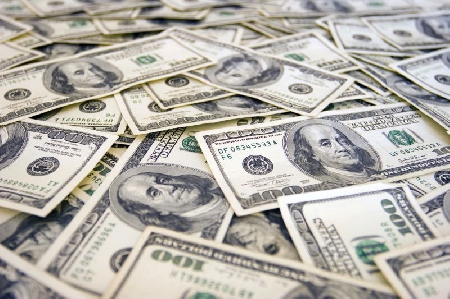Currency Exchange Operations of the Securitate
The Romanian communist regime sent its Political Police on a mission to produce money.

Steliu Lambru, 04.02.2013, 13:17
Despite its bombastic anti-capitalist rhetoric, the Communist regime was completely dependent on capitalism all along its history. Communist economies tried to take advantage of their links with the capitalist world as much as possible, although they were not even half as efficient as the capitalist economies. The hunger for hard currency was a constant characteristic of all the countries from the Socialist bloc, Romania included. Since the Socialist economy could not provide resources, the Romanian Communist regime put to work its repression apparatus, namely the Securitate, the Political Police, which was entrusted with the mission to produce money.
The hard currency operations of the Romanian Securitate are still a mystery for many Romanians. That is why the research that historian Florian Banu conducted in the archives of the National Council for the Study of the Securitate Archives is a first step in an effort to uncover the mysteries of the former Romanian political police. Florian Banu:
“The issue of hard currency operations by the Securitate emerged in the 1950s. In the first years after it was set up, the Securitate was faced with many problems, which were inherent to any secret information service, and even more so to a political police service such as the Securitate. The need for hard currency was not that high at that point, because trade relations with the West had been severed. After the mid 1950s, with the opening towards the West and the resumption of trade relations with France, Germany and Great Britain the issue of hard currency emerged. At first hard currency was obtained by recovering the property of the Romanian citizens who had settled in the West. All those properties from the West had to be brought to the country and, to this end, the Securitate approached those people’s heirs from Romania. However these operations were only occasional. Towards the late 1950s the Securitate resorted to “confidential channels” to obtain hard currency in exchange for issuing emigration visas. Part of the Jewish community and of the German minority thought the future of Romania to be insecure and gloomy, so they chose to emigrate”.
Hard currency became a top priority for the Communist regime. That is why it received a lot of attention. Florian Banu:
“The Romanian state had the monopoly over all hard currency, which was considered state property and which had to be cashed by the state. Very strict legislation was enforced in this regard, and the money the Securitate obtained was deposited at the State Bank of the People’s Republic of Romania in a special account, which was strictly monitored. On July 31st1965 there were 6,857,000 dollars in this hard currency bank account. Money could only be taken from this account under strict surveillance. The officers who took the money were wired, discussions were taped and the likelihood of officers’ stealing some of this money was diminished. The Securitate was allowed to use 20% of the money for operational purposes, such as paying foreign informers or purchasing modern equipment from the West. Only a small amount was used to buy hunting rifles for high communist officials.”
In the years of the communist regime headed by Nicolae Ceausescu between 1965-1989 the Securitate constantly tried to find more ways to obtain foreign currency. Florian Banu:
“As a novelty, in the early ‘70s the Securitate insisted that the money should be sent to Romania by bank transfer instead of the classical cash method, which nevertheless continued to be in use throughout the 1980s. The officers with the Romanian Foreign Intelligence Service’s Directorate One were the ones in charge with bringing hard currency to Romania in cash. After 1978, Romania’s entire espionage structure was reshuffled after Pacepa, the deputy head of the country’s counterintelligence service, defected. This is when things started to change. A special department was set up, for special hard currency contributions. At the end of the 1970s, the number of hard currency operations grew, because the communist regime had to pay a lot of foreign debts. The oil crises in the 1970s, the oversized chemical industry, the loss of several foreign markets and a substantial increase in the interest rate on sovereign debts put a huge pressure on the Romanian state.”
Historian Florian Banu tells us how the Romanian secret police succeeded in recovering some of the money.
VM-TRACK: “Clear instructions were given about what type of hard currency transactions were accepted. An example in this respect is the recovery of certain amounts in foreign currency from the confidential commissions approved by the Romanian authorities for the foreign citizens who contributed to the signing of contracts that favored Romania. How was it done? Here is an example. The Romanian state wanted to export tractors to Iran and in order to win the tender it paid a commission to a high Iranian official. After the contract was signed and the export started, Romanian secret police officers would contact the Iranian official and tell him, under the pretext of additional costs with the exports, that he had to give some of the money back. And the respective official would give in. For instance, if he had got a bribe of 10% of the contract value, he would be asked to return half of it. So this money was taken back and transferred to Romania.”
Nevertheless, the hard currency operations of the Romanian secret police did little to prevent the fall of the communist regime. They did however train some people who, after 1989, managed to take over an important part of the country’s emerging market economy.






























